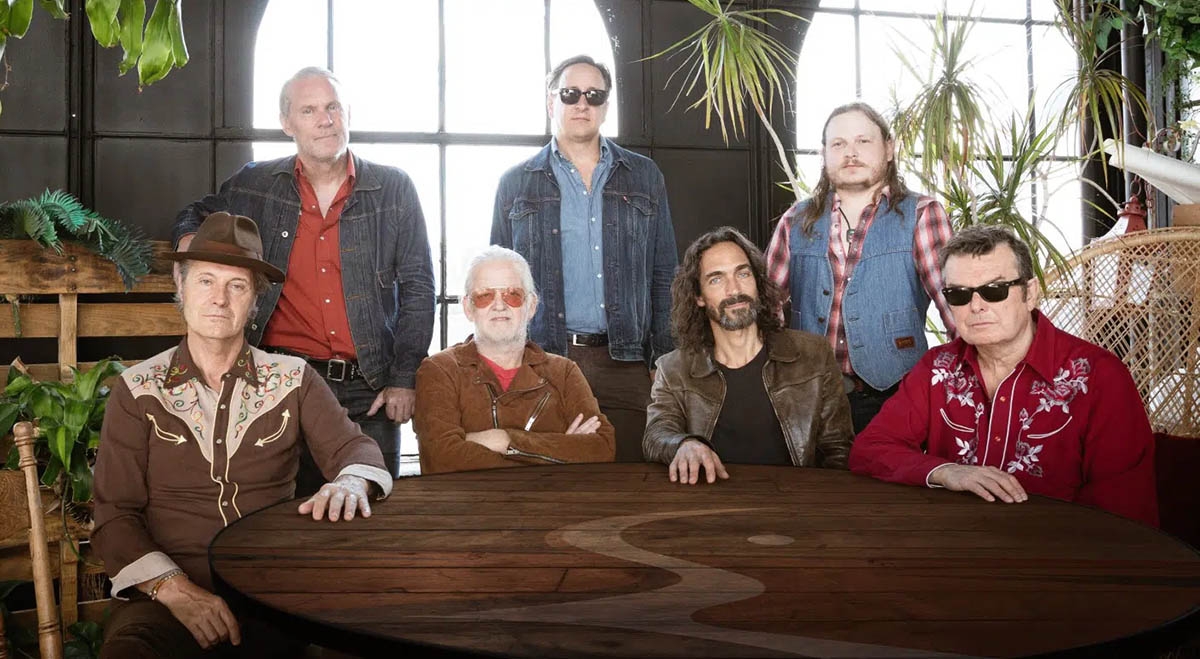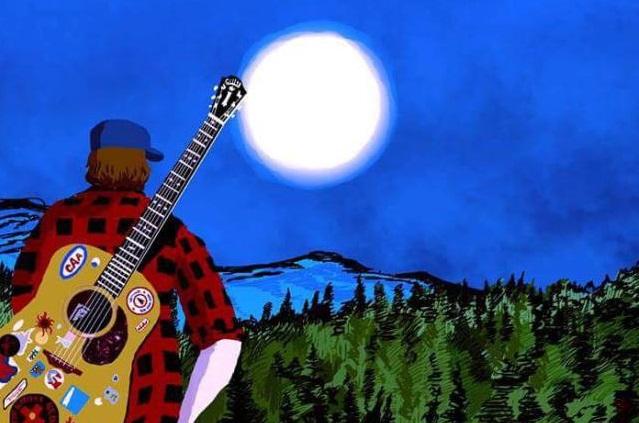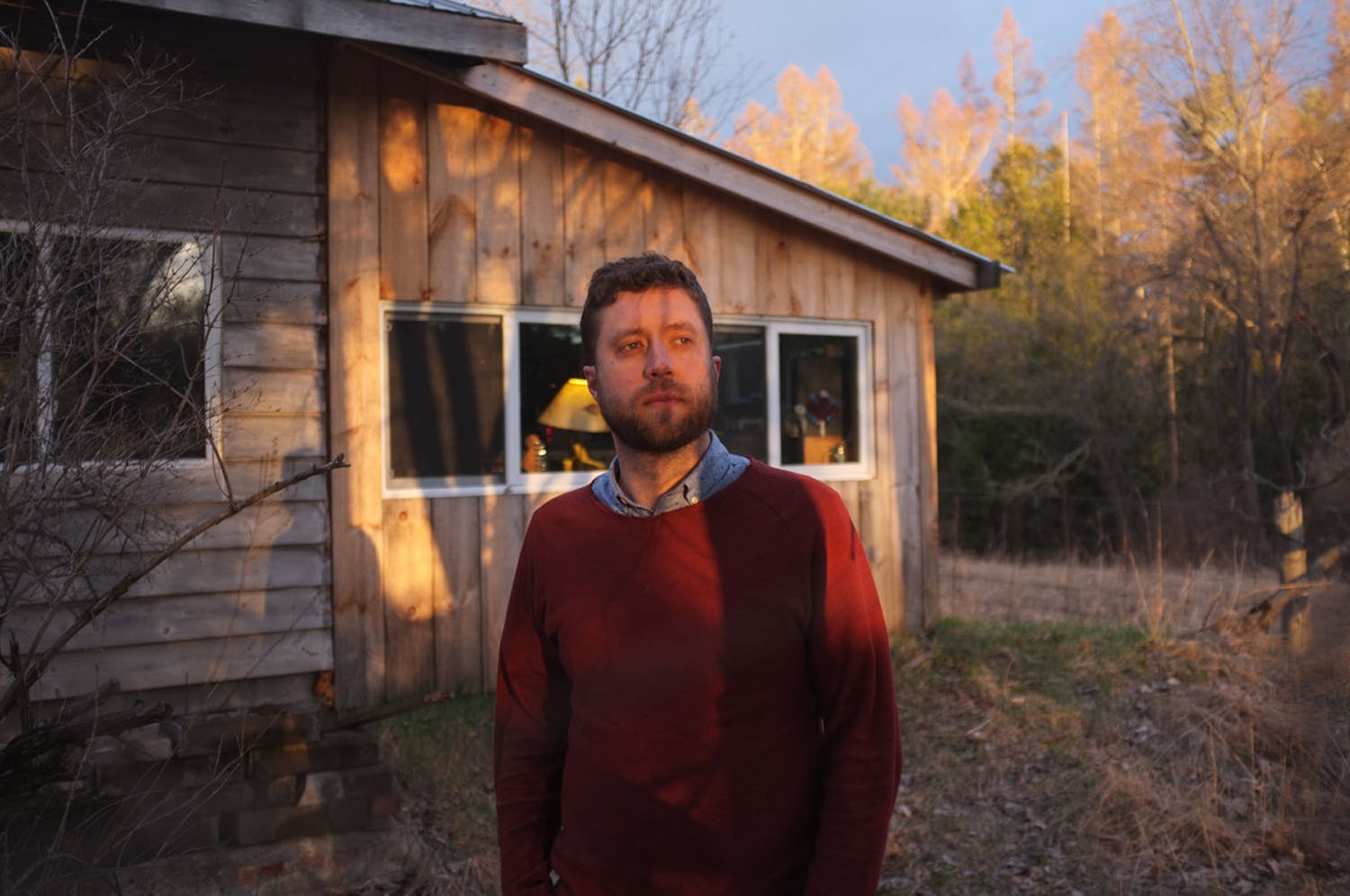
Canada’s band, Blue Rodeo returns to the capital with Many A Mile Tour
Blue Rodeo is coming to The Canadian Tire Centre on April 8th!
Blue Rodeo’s 16th studio album, Many a Mile, their first in five years, was released by Warner Music Canada last December with the new song When You Were Wild. Between the band performing the song on YouTube combined with the release of the official song video, it garnered close to one quarter million views, immediately propelling the band back into the mainstream limelight.
Shortly after the album release, When You Were Wild singer Greg Keelor said the song can be summed up by the lyric, “On your darkest day you’ll find your best friends.” “That line is what When You Were Wild” is all about. “When you meet your moment of reckoning, and you feel the fuckery of fate’s wheel careening through your life, it is friends that get you through,” Keelor explained in an announcement. “A lifetime of friendship is only remembered in the moment.”
“Many a Mile” is another great Blue Rodeo record, one of their best, that brings listeners back to the jangly blend of alt-country rock infused with a tint of pop that has made these legendary troubadours one of Canada’s favourite bands. The five songs by Jim Cuddy and seven by Greg Keelor feature the signature sound and harmonies of Blue Rodeo that fans have come to love over the past four decades. Besides the catchy When You Were Wild, the album has other gems, including I Will Wait for You and Symmetry of Starlight.
The release of the single, When You Were Wild, set the stage for Blue Rodeo’s Many a Mile Tour, which began March 24, 2022 in Saint John, New Brunswick, and includes twenty-six more dates across Canada ending in December in Alberta. The Ottawa stop is on April 8th at the Canadian Tire Centre.
Ottawa Life Magazine had a chance to interview Jim Cuddy prior to heading out on tour to get his thoughts on the new album and touring again after the covid calamity.
OLM: Many a Mile is the 16th Blue Rodeo album and first in five years after 1000 Arms, in 2016, and it is the first one after the Covid weirdness of the past couple of years.
Jim Cuddy: Yes, it’s funny because, in hindsight, I don’t think we really planned to do an album, and it’s peculiar and great how it came together. Greg had a bubble going (during Covid) with Jimmy Bowskill and some other friends in a studio in Ganaraska near Cobourg. They produced his 2021 album ‘Share the Love’ from there. After it was released, Greg called and said he had written a bunch of songs that could be good for another Blue Rodeo album. I got them; he had a lot of songs. I love Greg’s songs. Anyways, at that point, I was spending time in my own bubble in the Woodshed Studio (Toronto) with Colin Cripps, and we were working on some songs for the Jim Cuddy Band. When I got the songs from Greg, it made me switch gears, and that is how we came to produce Many a Mile.
OLM: I have read that you were never actually in the same studio together while doing this album and that it was produced with Greg Keelor in Coburg while you were at the studio in Toronto. It seems like a very covid thing……producing virtually by Zoom or Google video?
Jim Cuddy: (laughs) Yeah, that was something . . . so we would go upstairs in the studio and take an antigen test and then get to it—we put down some acoustic versions with digital drums. Then Glen Milchem would put these beautiful parts down. Everyone got to work on their track for each song and send it in. Then we would send it to Greg and he and Jimmy would put their stuff on and send it back. So it was all done in this sort of haphazard way which is an unusual way to make a record. But it was also very precise in its own way. Usually, when you are producing a record there is tension and that's not necessarily a bad thing. Sometimes you want people in a band to have tension.
OLM: Does that tension make for a better album or outcome?
Jim Cuddy: Well, we each have an idea of what a song or album can be. We want to get the song and music to where it should be. Greg can be very malleable, but he has had regrets about how some songs have been done. I do too, but it’s rare you get to re-do a song once you’ve recorded it. So, that is what drives it. But this time (out of necessity), it was different in just the way things came together and the overall approach. The technology was key: putting an acoustic guitar down, finding something on the internet that helped it to work, or Glenn or Basil finding something that works on a song. But the songs, as we were going back and forth and while they were being recorded, were familiar forms. It was so different . . . in a surprising and good way. Each person had the time to do their own thing, take their time, lay down their own track or interpretation for their instrument for each song. And there was a lot of acceptance.
OLM: Did that acceptance replace the tension you describe that can be good or even necessary at times?
Jim Cuddy: Usually, the way you work in a studio is one person is guiding without outside help. That can create tension because you become focused on specific things being in and others not being included. Before, I needed all that stuff to see what I needed in a song. But this process was different. It was slower in some ways but precise, and there was no pressure. Everyone on the album had a chance to put in their own interpretation and contribution, and it all came together.
OLM: So you have the songs and two studios, and then you get Colin Cripps and Jimmy Bowskill (guitarists), Glenn Milchem (drummer), Bazil Donovan (bassist), and Mike Boguski (keyboards) to come to the studio on their own to record their parts, and then you do edits and rinse and repeat until you get it right?
Jim Cuddy: Yeah, that was the process. We did the same for singing and recording harmonies; we went back and forth digitally between studios.
OLM: So, you get the songs together for the album and go back and forth virtually between the band members and then between the Toronto and Coburg studios–each band member puts down their own part or stamp for each track, and it sounds great. And now you have this sort of produced album. But how was it when you finally all got together in person in one room and had to play them as a band?
Jim Cuddy (laughs—yeah, good question—laughs again) Well, we’ve been playing together for 40 years—doing live shows together, so when we played the new album together live, it was not difficult, it was great. The strange thing is that it’s been two years of total shutdown, so it takes a while to get used to being together again, out there, performing again. We thought a couple of times with Covid that things were opening, and then they weren’t. Covid has been challenging and weird in many ways. Getting back to the normality of things takes some getting used to.
OLM: How does the tour look given the Covid prognosis and things opening?
Jim Cuddy: Over the next six months, we plan to be in the east, west, Ontario, and Quebec . . . and Ottawa of course. We do love Ottawa.
OLM: Before we let you go, we want to veer off in a different direction and ask you about Peter Jackson’s documentary on The Beatles. You and Greg have spoken many times about your love of The Beatles and their influence on your music and career. What did you think of the movie? Did it change any of your perspectives or perceptions about The Beatles?
Jim Cuddy: I thought it was incredible, just incredible. In one way, it made me mad about Let It Be and the false narrative that it presented about them that was so negative. What Jackson showed was really beautiful: these guys (The Beatles) were friends, and there were lots of funny moments. Jackson’s film was so well done. It was highly respectful, and it showed just how mature and so fucking talented these guys were. Think about it, when they did that album (Let It Be), they were 28 years old, and that was them at the end of their playing as a band since they were kids. Everyone in the world knew them, and they were never alone, and there they were, trying to write songs in front of these cameras. Paul was tough; George was sort of a malcontent at that time, but they were all together, and so into it, so good, and they had such a positive nature—they were friends. It resurrected the Beatles in that way . . . that their split was not what they said it was. I thought it was brilliant.
Many a Mile tracklist
1. When You Were Wild
2. I Owe It to Myself
3. Deep Dark Well
4. All in Your Hands
5. Symmetry of Starlight
6. I Will Wait for You
7. The Opening Act
8. Never Like This Before
9. Criticize
10. I Think About You
11. Julie Is Painting
12. Ride Your Bike
PHOTO: Dustin Rabin









